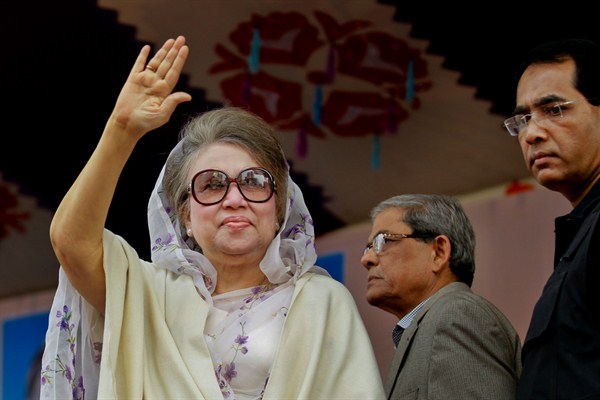On April 5, following the injunction of a judge in Dhaka, Khaleda Zia, the former Bangladeshi prime minister and current leader of the opposition Bangladesh Nationalist Party (BNP), showed up in court accused of responsibility for a lethal arson attack last year. Prosecutors claimed that Zia instigated the attack on a bus, which left 12 people dead, by calling on her supporters to enforce a transportation blockade as part of protests against the government of the present prime minister, Sheikh Hasina, of the Awami League.
After her appearance in court, Zia almost immediately obtained bail. To no surprise, her party and her supporters have dismissed the charges, which are also aimed at 27 other BNP leaders, as frivolous and politically motivated.
The veracity of the charges aside, Zia’s willingness to surrender to the court was significant. Last year, another arrest warrant was issued for two graft cases, but it was not executed because Zia refused to show up. Even though Bangladesh has a working judiciary, its ability to always implement its writ is at question. Now that Zia is on bail, it remains to be seen how the judiciary will attempt to prosecute the case against her and the other opposition activists and followers.

